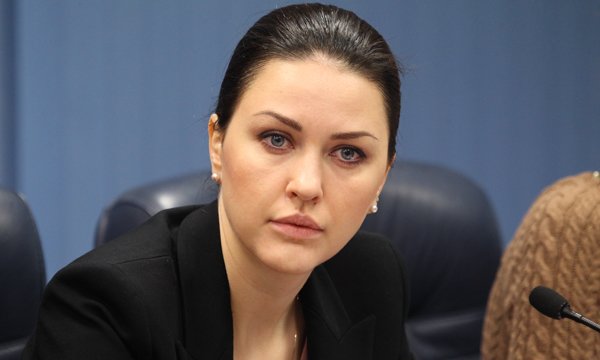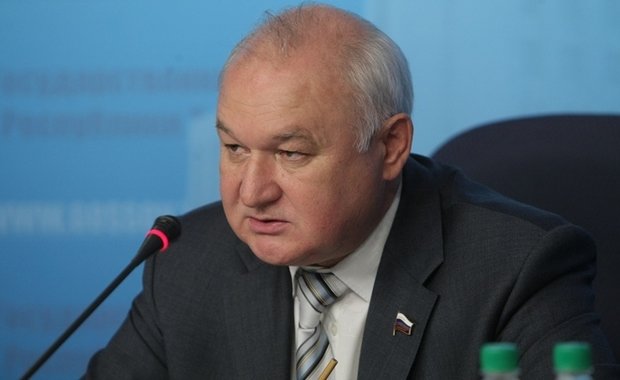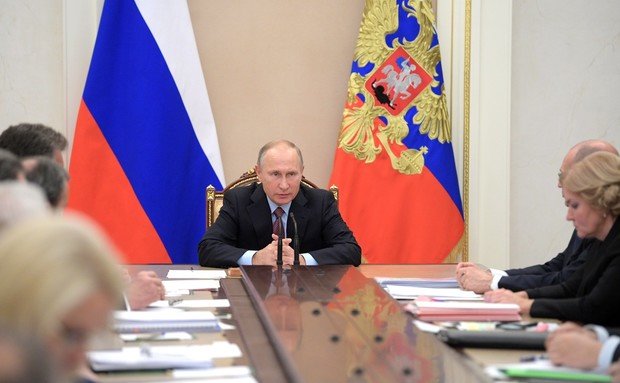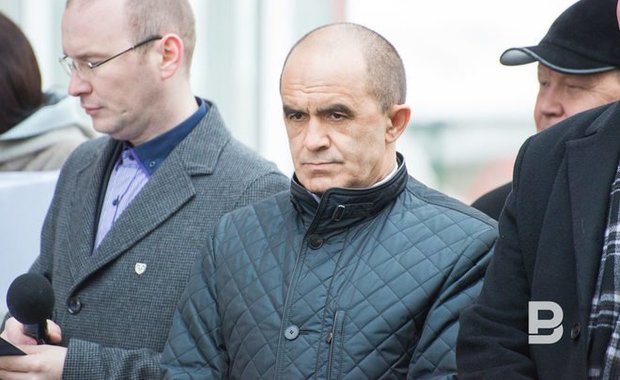''I will not support this variant of the bill, it brings discord in national republics''
Mandatory study of non-native ethnic languages will be cancelled, but a fund to support native ethnic languages to be established
The State Duma of the Russian Federation adopted in the first reading a bill on amendments to the Federal law ''On education in the Russian Federation'' concerning study of native ethnic languages on June 19. Out of 377 voters, only three pressed the ''against'' button and one abstained. The correspondent of Realnoe Vremya watched the discussion of the bill live.
Lesson for the future: continuous violations and gaps
Presenting the draft bill, deputy from the United Russia party Alena Arshinova tried to anticipate its sharp criticism from the defenders of ethnic languages of peoples and state languages of the republics of the Russian Federation and possible conflicts in the discussion with the national subtext. She quoted the statement of the president of Russia at last year's council on interethnic relations that ''you cannot force a person to learn a language that is not native to him or her'' and stressed that the adoption of amendments to the law ''On education'' is long overdue because ''the Prosecutor's office identified thousands of violations'' of this kind. She noted that deliberately, so as not to inflame the conflict, she did not mention republics where these violations occurred, she listed everything that took place in Tatarstan, namely, the decline in Russian language teaching, imposition of mandatory testing for non-native students of the ''native language'' and the fines issued to parents for refusing to spend time attending classes of the ethnic language, where the language was not actually studied.
She specified that in addition to the blatant violations of the rights of students and their parents, when studying the problem, the authors of the bill ''revealed a large layer of problems'': in the national republics there is a mandatory teaching of languages of the peoples of the Russian Federation, but ''there is no methodology of teaching and there is no fully prepared teachers''. It turns out, in between times they managed to quite clearly answer the question, which for a long time non-Tatar parents of Tatarstan students asked — why their children, carefully studying the ''native ethnic'' non-native language from the kindergarten in volumes much larger than Russian by the end of the course couldn't either speak it or understand it.

In reconciliation, Alena Arshinova, slightly hesitating, read on a piece of paper the phrase in the Moldavian language which she studied at school, on her assurance, voluntary, according to the written statement of her parents as it was language of her schoolmates and friends. As if making it clear that it is better to agree on the amendments to the law in a friendly way.
Native language — not optional, and native language – Russian
Co-rapporteur of Arshinova, Chairman of the Duma Committee on Education and Science Vyacheslav Nikonov began promoting the bill, which, according to some representatives of the national republics, threatens an oblivion of ethnic languages with a hint that it would not be bad to start to understand which of them should be saved and how to do it.
Nikonov said that the bill that caused heated debate would be very seriously revised by the second reading, and now its authors have done a great job to eliminate any possibility of bringing the ethnic languages to the level of optional.
Along with the adoption of the amendments to the law ''On education'', the authors of the draft bill propose to create a fund to support the study of ethnic languages from among the languages of the Russian Federation. This fund has a serious role to play: it is supposed to ensure the development of everything that does not exist yet — the concepts and methods of teaching native languages, the preparation and licensing of programmes and textbooks.
''Baker's dozen'' of deputies wished to ask questions to the speakers. Most of the thirteen signed up were concerned about the same problem, which was vigorously discussed in the State Council of the Republic of Tatarstan on May 24 — before strongly opposing the adoption of the amendments to the Russian law ''On education''.

For and against
MP from LDPR Alexander Sherin spoke definitely in favour of the bill, he reminded that he had appealed to the Prosecutor's office in defense of the children of military men, who wander after the fathers across the country and everywhere they are forced to learn changing ''native'' languages.
For fairness sake, Sherin asked to clarify whether the ethnic languages would go in the section of mandatory to study by all the republics. Vyacheslav Nikonov guaranteed that this will not happen:
''The choice of state language is also possible, in the republics there are usually two state languages, and one of them is Russian.''
''The bill in this option would endanger the multinational Russian Federation,'' Yushaa Gazgireev tried to escalate the debate about the bill.
''I do understand you, but the opportunity of development for everyone should be created,'' Nikonov extinguished the appearing fire.
''I will not support this bill because it brings discord in national republics,'' joined Communist Party Deputy Valentin Shurchakov.
''I'm not happy myself,'' said Nikonov. ''How you vote is your personal choice.''
From the following statements it became clear that it was difficult to agree on the views for the deputies. Fedot Tumusov from A Just Russia, for example, remembered the Almighty with the tower of Babel, and the father of the peoples Stalin, and brought everything to the fact that ''many treated this bill as a declaration of war to the study of state languages'' of the republics.
''I was born in Altai, raised in Kazakhstan,'' Sergey Ivanov from LDPR drew logical line under the debate. ''There was no problem wiht native languages, the Kazakhs knew their language. You can't win love by force, and some subjects of the Russian Federation decided: if you live here — please, study our language.''
''School year starts soon, and we need to move forward,'' reminded Yevgeny Revenko from United Russia. ''The bill meets the needs of the society and expands the space of freedom. In some regions, he was strongly criticized. Not always delicately. But it is wrong to put the right of choice into question!''
… Judging by the results of the vote, the majority of deputies agreed with him.

Struggle for non-native ''native'' language
The draft law, adopted today in the first reading, has ''grown'' out of Putin's instructions given in the summer of 2017 in Yoshkar-Ola. He said the words that made a revolution in schools of Tatarstan. He said it is unacceptable to force a person to learn a language that is not native to him or her and reduce the volume of teaching Russian. Putin did not specify which regions the message was addressed to. Ex-minister of education and science of Tatarstan Engel Fattakhov categorically denied that it was to the republic, commenting on the speech, ''We have no violations''. Fattakhov was sure in the correctness to the last, otherwise the school curriculum would have been amended by the beginning of the school year, not in an emergency order, in the autumn holidays, when the timing of the report on implementation of Putin's orders pressed. The prosecutor's office eventually revealed thousands of violations in all schools from reducing the hours of learning Russian and violations of the rights on voluntary study of native ethnic languages to the imposition of final tests, which influenced both the transition into the 10th grade and the average score of the certificate (in fairness, we note that the testing, which is popularly called ''exam in the Tatar language'' was not mandatory).
What happened in the end? If earlier ''native'' language for children of all nationalities was only Tatar, now students can choose. The most popular option is Tatar and Russian. In Kazan, Hebrew is also popular, and in the regions of Tatarstan — Chuvash, Mari, Udmurt, Bashkir. The number of Russian lessons was brought to the federal standard. The changes did not affect Tatar schools where the Tatar language is studied in the same volume.
But this compromise satisfies neither the defenders of voluntary study of Tatar nor its opponents. The first claim that Putin's order is not fulfilled, as the subject of ''mother tongue'' is mandatory for study, and children who do not attend these lessons are put on record in the inspection and their parents are put in protocols and imposed fines. While at lessons of the ''native Russian language'' they study anything except for the Russian language — from rhymes to the history of Tatarstan.
The supporters of the obligatory study of Tatar have their own truth. They believe that the bill reduces the status of native ethnic languages and contradicts the Constitution of Russia. The best solution they see is to ''breake'' the Tatar language into two subjects — state and native. The first should be studied by everyone necessarily regardless of nationality, and the second — by choice.

The language crisis in Tatarstan has not passed without losses. Minister of Education of Tatarstan Engel Fattakhov lost the post when defending the preservation of obligatory study of the Tatar language, now he heads the Aktanysh region of the republic, and the new minister is a classmate of Fattakhov, graduate of the Agricultural Institute Rafis Burganov. The leadership of the ministry also changed at 80 percent.
Anyway, Fattakhov can hardly be called the sole culprit of the ''language explosion''. Dissatisfaction with the volume and methods of teaching the Tatar language in schools gained force long before Fattakhov took office. Rallies in support of the Russian language and the flow of ''plaintive'' letters to Moscow appeared in the 1990s, when the Tatar became mandatory for the study in Tatarstan, and then they began to increase the volume of hours of the Tatar language, and to reduce — of Russian. After the school ''revolution'' in 2017, half of the teachers of the Tatar language, which in the country was twice as many as Russian teachers, remained out of work. But no teacher, except for pensioners, was fired. Tatar teachers went for retraining and in the new school year are preparing to work in primary school and teach other subjects.
However, the supporters of mandatory study of Tatar in schools still hope to return Tatar as one of the compulsory subjects. Tatarstan State Council did not support the draft law on voluntary study of native ethnic languages, considering it does not meet the requirements of the Russian Constitution, other federal laws and does not agree with the legal position of the constitutional court of the Russian Federation on the teaching and study of state languages of the republics. On May 24, Chairman of the State Council of Tatarstan Farid Mukhametshin signed a corresponding resolution, which states this, it has been submitted to the State Duma of the Russian Federation.